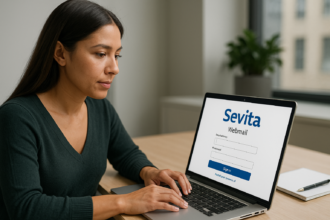Freelancing in the media industry offers incredible freedom and creative control, but it also comes with unique financial challenges. Managing irregular income, navigating tax laws, and keeping up with filing deadlines can be daunting. Many freelancers find themselves unexpectedly tangled in tax problems, which is why it’s important to understand how to stay ahead. Professional tax debt relief services can provide critical support when tax issues arise, but avoiding those pitfalls altogether is the ideal strategy.
Learning about the Tax Rules That Impact Media Freelancers
If you work as a freelancer in media, you do so without the support of a usual employer. Being independent means you are responsible for keeping track of your tax information and making quarterly payments. Unlike people who receive a salary, freelancers generally estimate the amount of tax they need to pay and submit it regularly, typically every few months. Failing to meet deadlines or misjudging your payments can result in additional penalties and interest, which only exacerbate your financial problems.
Many freelancers fail to recognize the importance of closely monitoring every income source. Since every media project is different, it may be challenging to keep track of the sums you owe. Additionally, since some payment platforms do not issue tax documents, individuals must report their earnings independently. Poor bookkeeping may cause you to underestimate the amount of income you earn or overlook deductions, which can put you at risk for an audit.
Freelancers Should Know About These Tax Errors and Ways to Avoid Them
Many freelancers encounter tax issues by failing to separate their personal and business finances. When individual and business costs are combined, preparing taxes becomes more complex, and some deductions could be rejected during an audit. If you use a business bank account and a business credit card, it becomes easy to keep track of your spending and make your financial history clear. This step will prevent any confusion and demonstrate that you are a professional, should you need to provide proof of expenses to tax officials.
Some people don’t realize all the deductions they are permitted to claim. Those who work as freelancers in media usually need to cover the costs of equipment, software, travel, and even setting up a home office. But you should always identify the expenses that are allowable for business deductions. A good example is that a camera purchased for work can usually be deducted; however, if you use it for both business and personal purposes, you must calculate and deduct only the business portion. Always keeping a detailed record of expenses and the reason for them prevents you from claiming disallowed deductions.
Paying your taxes late can cause numerous complications. Self-assessment returns and payments must be submitted before the given deadlines. Failing to meet these deadlines can result in the government charging you more, which can be costly. Having reminders and using online tools or a tax specialist will make it easier to stick to all deadlines and prevent extra trouble.
The Significance of Receiving Help from Experts
It is preferable not to have tax issues, but freelancers may occasionally encounter unexpected tax problems. Regardless of whether it’s caused by an audit, underpayment, or a problem with tax authorities, these situations should be handled promptly and by experts. When you use professional tax debt relief services, you are more likely to avoid serious financial problems.
Tax relief services handle negotiations with the government, which can result in plans for paying your taxes, reduced penalties, or, in some cases, the elimination of your debts. For freelancers in the media who must manage both limited funds and unpredictable earnings, such advice provides them with confidence and a clear path forward. Moreover, a tax expert can suggest ways to set up your finances in your freelance business to reduce possible risks in the future.
Looking Ahead to Manage Taxes Properly
Effective financial planning is the foundation for avoiding tax-related issues. Monitoring your income and expenses throughout the year prevents surprises when you file your taxes. Every freelancer should set aside a certain amount of every payment into an account used solely for taxes. With this approach, you won’t use your living or business money and will have enough to pay taxes on time.
Frequently checking your taxes with a professional, especially after a significant event occurs, helps you stay in compliance. Since tax rules are updated regularly, freelance journalists working in media should know about new deductions, reliefs, or changes in filing rules. Working with a tax expert means you’ll always be informed and offered advice on how to improve your strategy.
Conclusion
There are many opportunities in freelance media work, although it requires special attention to financial matters to avoid tax problems. If freelancers learn from common mistakes and apply helpful tips, they can avoid costly issues and penalties. It is essential to seek professional tax relief assistance when problems arise, but maintaining well-organized and well-managed finances will provide your business with greater stability. Staying ahead of your taxes saves your finances, allowing you to focus on creating great media content.

















